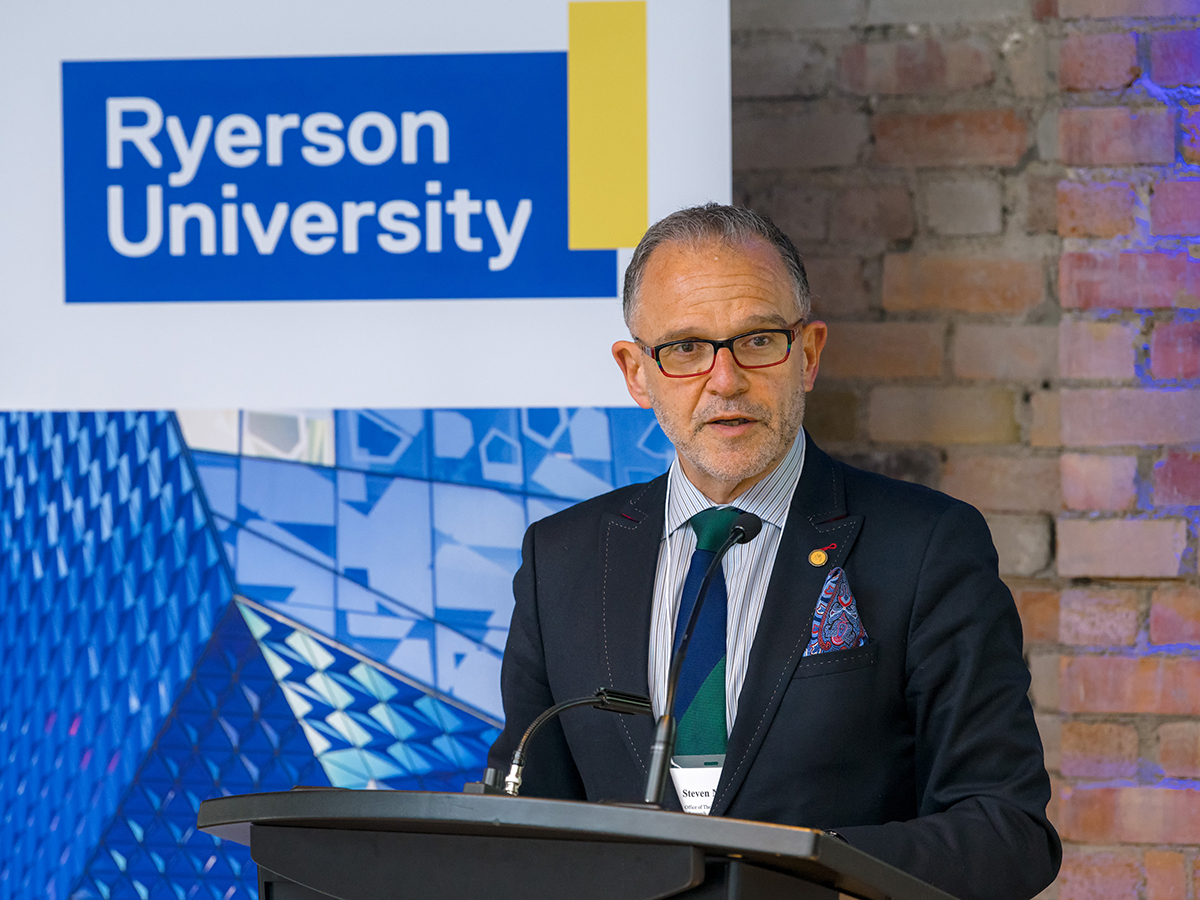Written by Dr. Steven N. Liss, Vice-President Research and Innovation, Ryerson University. Originally published in Research Infosource Inc.
Knowledge creation and the headwaters of innovation are deeply embedded in the tradition of university research, scholarship and creative activities. Our students, research trainees and faculty increasingly bring new knowledge, ideas and innovations to the forefront of the most pressing issues facing our planet and our communities – creating opportunities to advance economic prosperity and quality of life.
In an innovation economy, the ability to collaborate, to compete, and to address complex challenges is key. By their nature, complex challenges transcend borders and require a willingness to work differently, to establish new combinations and types of relationships. This includes coopetition, breaking down silos to look horizontally, intensifying international partnerships in the face of geopolitical challenges, and recognizing the value of the intersections where innovation occurs.
Tackling challenging issues, such as climate change, immigration, advancing sustainable and innovative cities, and industry 4.0, requires us to look ahead while keeping in mind the fundamentals of knowledge upon which sound decision- and policy-making is created. Research provides the critical insights that can be leveraged to shape future directions and encourage aspirational and visionary thinking. We need the space to ask fundamental questions that address the grand challenges, formulate and test hypotheses, and determine who is in the best position to act on the outcomes of this work to advance ideas that can have impact. In many instances, there will be a time lag between efforts in deep technology and their results, which could conceivably have profound impacts on our lives.
Ryerson’s place at the centre of one of the world’s most diverse cities provides a unique lens through which to view and address societal challenges Ryerson is a leader in the transdisciplinary exploration of international migration, integration, and diaspora and refugee studies through the Ryerson Centre for Immigration and Settlement (RCIS). Ryerson also has Canada’s only graduate program devoted to the advanced study of immigration policy. Building on this foundation, in August 2019, we welcomed Dr. Anna Triandafyllidou as the Canada Excellence Research Chair in Migration and Integration where she leads a multi-faceted program to fundamentally transform approaches in migration studies, foster global collaborations, and impact policy and practice.
Our strategic partnerships are at the core of leading hubs for research and innovation. This has been key to the success of the Institute for Biomedical Engineering, Science and Technology (iBEST) and the Biomedical Zone (BMZ), in partnership with St. Michael’s Hospital.
The MedTech Talent Accelerator is an innovative training program co-designed with industry and supported by a Collaborative Research and Training Experience (CREATE) grant. The accelerator is led by Dr. Stephen Waldman of both Ryerson’s Department of Chemical Engineering and iBEST.
Dr. Kathryn Underwood’s partnerships, and support from SSHRC and CIHR, are addressing human rights and education practice, particularly with regard to disability rights and inclusive education. Her research in the School of Early Childhood Studies examines how constructions of disability in education and early childhood program contexts are used to organize children.
Dr. Ebrahim Bagheri is building technology that enables machines to understand social content the way humans do. As the NSERC/Warranty Life Industrial Research Chair (IRC) in Social Media Analytics and as a Tier II Canada Research Chair (CRC) in Software and Semantic Computing, his laboratory works in collaboration with partners to analyze large-scale digital “breadcrumbs” from user-generated data.
We are at the precipice looking beyond the horizon to chart pathways and directions for the future in a digital world at the Rogers Cybersecure Catalyst, pivoting in an innovation economy at the Brookfield Institute, and preparing for disruptions in the nature of work at the Future Skills Centre.
By encouraging brain circulation, setting a bold course and focusing on connections, collaborations and excellence, we can create evidence-based solutions and activate real-world transformation that will enhance Canada’s competitiveness and prosperity.

